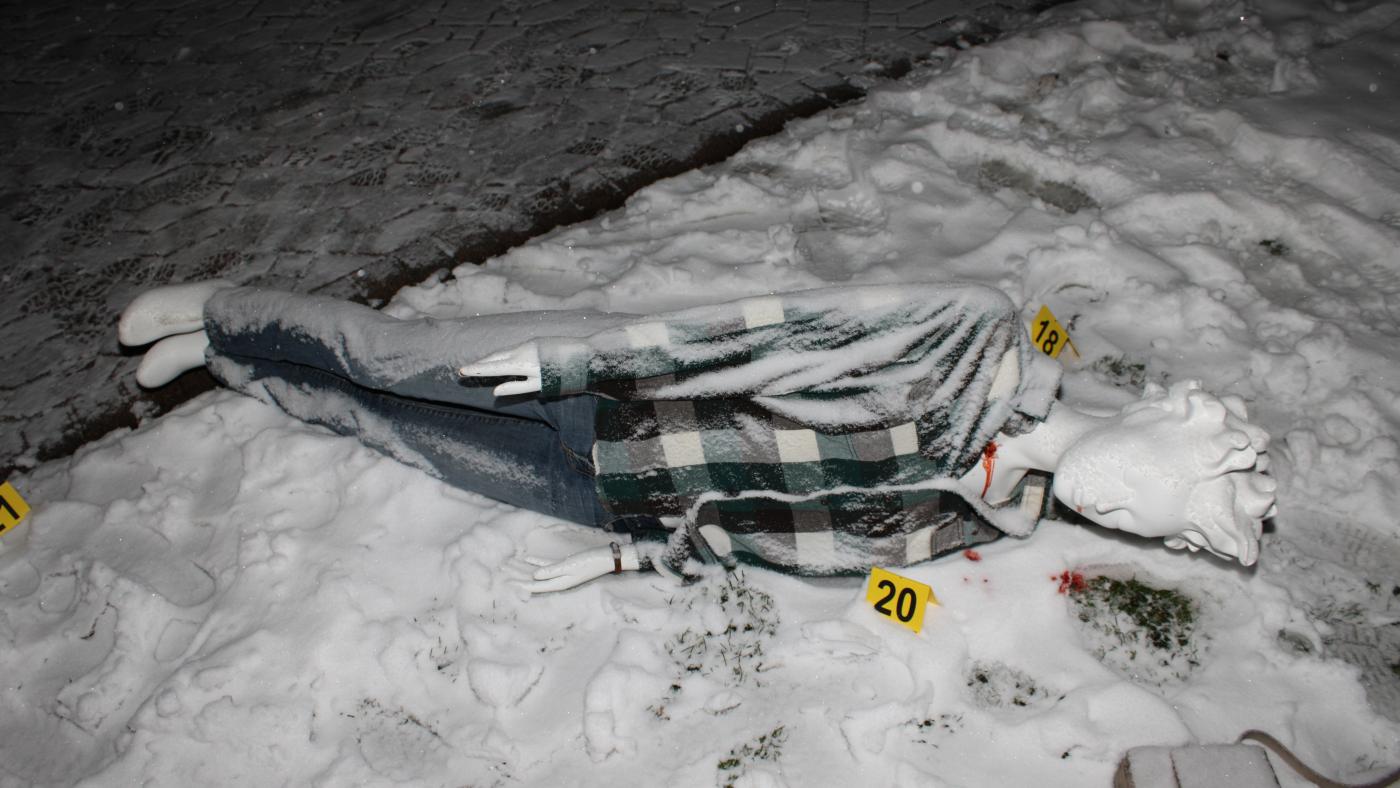Crime scene photos have always intrigued the public, stirring a mixture of fascination and horror. The visual evidence captured in these images often tells a story far beyond the initial tragedy, revealing the complexities of human behavior and the circumstances surrounding a crime. In this article, we will delve into the enigmatic world of crime scene photos, specifically focusing on a collection often referred to as "crime scene photos dede." With a blend of historical context and modern-day implications, we will explore the significance of these images and what they reveal about our society.
Crime scene photos are not merely snapshots of a moment frozen in time; they are pieces of evidence that can make or break a case. They serve as a critical tool for investigators, offering insights into the events leading up to and following a crime. The term "crime scene photos dede" refers to a specific series of images that have sparked public interest and debate, raising questions about ethics, privacy, and the nature of justice. As we navigate through this topic, we will highlight the importance of these photos in criminal investigations and their impact on the public's perception of crime.
Moreover, the emotional weight carried by crime scene photos can have a profound effect on viewers. Each image encapsulates a story, a life altered or lost, which can evoke empathy, curiosity, or even indifference. In a world where media consumption is at an all-time high, the presentation of crime scene photos can influence public opinion and even sway legal outcomes. In this article, we will dissect the phenomenon of crime scene photos dede, exploring both their historical significance and their place in contemporary society.
What Are Crime Scene Photos Dede?
Crime scene photos dede refer to a specific collection of photographs taken at various crime scenes that have garnered attention for their stark and revealing nature. These images serve a dual purpose: they document the scene for investigative purposes and evoke emotional responses from the public. Understanding their context and significance is essential in unpacking the impact they have had on crime reporting and public perception.
How Did Crime Scene Photos Dede Gain Popularity?
The rise of social media and instant news coverage has played a significant role in the proliferation of crime scene photos. The accessibility of these images has sparked debates about ethics and sensationalism in crime reporting. As people share and discuss these images online, crime scene photos dede have become a cultural phenomenon, raising questions about the moral implications of viewing such sensitive content.
What Ethical Considerations Are Associated with Crime Scene Photos Dede?
When it comes to sharing and viewing crime scene photos, ethical considerations abound. These images often involve real victims and their families, making it crucial to approach them with sensitivity. Some of the ethical questions raised include:
- Should crime scene photos be accessible to the public?
- What are the implications for the families of victims?
- How can media outlets responsibly report on crime without sensationalizing it?
Who Is Behind the Crime Scene Photos Dede Collection?
The creators and photographers behind crime scene photos dede often remain anonymous, as their work serves specific investigative or documentary purposes. However, understanding the background and expertise of these individuals can provide insight into the quality and intent of the images captured.
What Role Do Crime Scene Photos Play in Investigations?
Crime scene photos are invaluable tools for law enforcement and forensic investigators. They help reconstruct the events surrounding a crime, serving as visual evidence that can support or contradict witness testimonies. The following points highlight their importance:
- They provide context to the physical evidence collected at the scene.
- They assist in creating timelines of the events that transpired.
- They can be used in court to bolster or refute claims made by witnesses.
How Do Crime Scene Photos Dede Affect Public Perception of Crime?
Public perception of crime can be heavily influenced by the portrayal of crime scene photos in the media. The graphic nature of these images can lead to heightened fear or desensitization regarding crime rates. By examining the impact of crime scene photos dede on public sentiment, we can better understand the complex relationship between media representation and societal attitudes toward crime.
What Are the Legal Implications of Sharing Crime Scene Photos Dede?
The legal landscape surrounding the sharing of crime scene photos is complex. Laws vary by jurisdiction, and the release of such images can lead to significant legal battles. Key legal considerations include:
- Privacy laws protecting victims and their families.
- Freedom of information laws that govern public access to government-held information.
- Potential for defamation or emotional distress claims from families depicted in the images.
In Conclusion: The Legacy of Crime Scene Photos Dede
Crime scene photos dede represent more than just visual documentation of tragic events; they encapsulate the complexities of justice, media ethics, and societal perceptions of crime. As technology continues to evolve, so too will the ways in which we engage with these powerful images. Understanding their significance is crucial in navigating the delicate balance between public interest and ethical responsibility.
What Can We Learn from Crime Scene Photos Dede?
Ultimately, crime scene photos dede serve as a reminder of the human stories behind the headlines. They challenge us to reflect on our relationship with crime and justice, urging us to consider the implications of our curiosity about the darker aspects of human existence.
Unraveling The Mystery Of The Gypsy Rose Mother Crime Scene
Unraveling The Mystery Of Dee Dee Crime Scenes
Unraveling The Mystery: Crime Scene Pictures Of Gypsy Rose Mom


